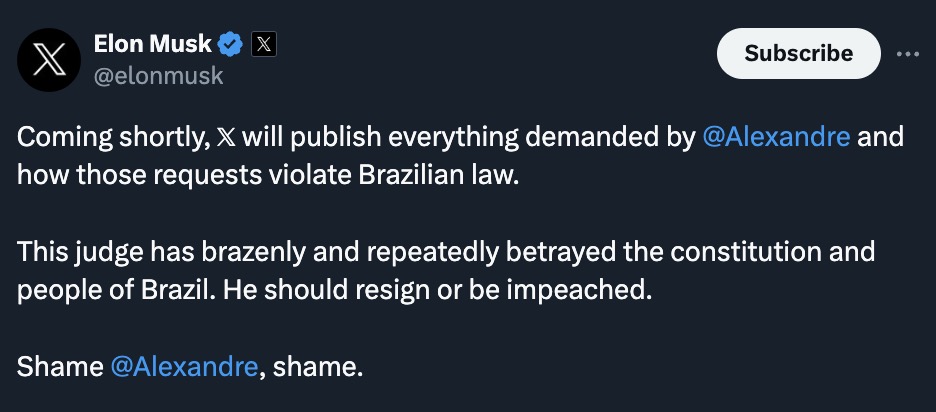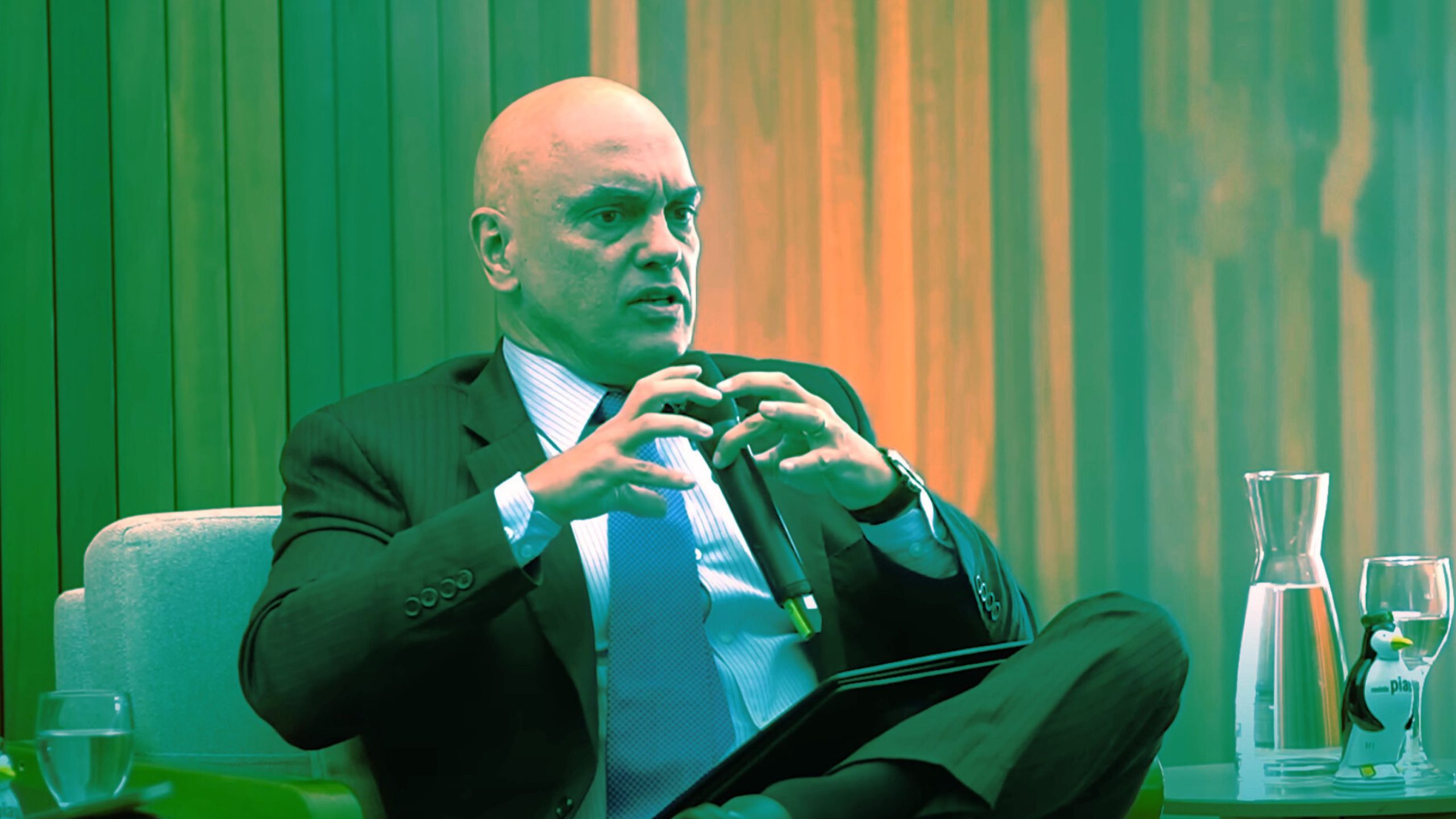Elon Musk has announced a decision to revoke the restrictions X had previously placed on certain Brazilian accounts. This move, he acknowledges, could potentially lead to the shutdown of X’s operations in Brazil.
Late on Saturday, a post on X disclosed that the platform had been compelled by court decisions to block “certain popular accounts” in Brazil. The reasons for these restrictions or the specific posts that allegedly violated Brazilian law were not detailed.
Musk, in a direct response to these actions, stated on X, “We are lifting all restrictions. This judge has applied massive fines, threatened to arrest our employees and cut off access to X in Brazil.”
He also noted the probable financial implications, including the loss of all revenue in Brazil and the closure of X’s local office.
Reclaim Your Digital Freedom.
Get unfiltered coverage of surveillance, censorship, and the technology threatening your civil liberties.
The identity of the judge responsible for the original ruling was not revealed by either X or Musk. However, Musk’s decision came after a post on X criticized Alexandre de Moraes, the head of Brazil’s Supreme Court, for suppressing free speech and was soon followed by one doing the same.
“Coming shortly, X will publish everything demanded by @Alexandre and how those requests violate Brazilian law,” Musk tweeted.

Observers are closely monitoring Brazil’s political climate, which, in terms of speech, has been accused of edging towards authoritarianism, as seen in the actions of Supreme Court Justice Alexandre de Moraes and President Lula da Silva. The government’s increasing financial support for media outlets that favor censorship and the potential shutdown of X/Twitter by Brazil’s Supreme Court signal a troubling shift. Despite Brazil maintaining democratic elections, there is growing unease about the Federal Supreme Court and Superior Electoral Court potentially undermining these democratic foundations.
Last week, as we reported, more information shed light on Justice Moraes’ unconstitutional demands through the release of a new set of Twitter Files. These files revealed Moraes’ requests for private user data and internal Twitter information, flouting the platform’s policies and due process. His use of Twitter’s moderation tools targeted supporters of former president Jair Bolsonaro, highlighting a broader issue of censorship transcending political lines.
De Moraes has been involved in several controversial censorship measures.
In 2020, De Moraes ordered the global blocking of various social media accounts. This decision, part of a “fake news investigation,” targeted accounts suspected of spreading false information and making threats against federal judges. Facebook and Twitter initially blocked these Brazilian accounts locally, but after users bypassed the blocks, De Moraes ordered a complete global block, which led to compliance from the platforms.
Justice De Moraes has enforced censorship measures on media outlets and individuals. For instance, the Superior Electoral Court prohibited media group Jovem Pan from broadcasting content related to former President Lula’s conviction, labeling it as propagating “false narratives.” This action extended to individual journalists from the media group, leading to their departure.
In January 2023, the Supreme Court ordered the removal of social media profiles belonging to journalists Rodrigo Constantino and Guilherme Fiuza.
Last year, Justice de Moraes initiated an inquiry targeting top officials at the social messaging service Telegram and Alphabet’s Google. These executives were responsible for spearheading a campaign against a prospective internet regulation bill. This proposed legislation shifted the responsibility of identifying and reporting unlawful content onto internet corporations, search engines, and social messaging platforms, bypassing the judicial system. Additionally, it imposed significant penalties for non-compliance.




